

Publications Regarding High Court of Justice
Articles

What is Missing from the Court's Decision on the MAG Leak Investigation
Written By: Prof. Suzie Navot
The High Court handed down a decision allowing the Minister of Justice choose the civil servant to oversee the investigation into the Sde Teiman video leak affair in the Attorney General's stead. This sets a concerning precedent and ignores the current political reality in Israel.

Israel’s Shin Bet Saga, Continued
Written By: Prof. Amichai Cohen, Prof. Yuval Shany
Following Ronen Bar’s resignation and an HCJ judgment, Netanyahu has rushed to propose a new Shin Bet head, inviting legal challenges.

Arab Representation in the Judiciary is Under Threat
Written By: Adv. Lital Piller
By shifting power from professional bodies to political appointees the new law restructuring the Judicial Selection Committee is likely to reduce Arab representation and exacerbate their exclusion.

Exploiting the Public's Distraction to Pursue the Judicial Overhaul
Written By: Dr. Guy Lurie
Amidst the return to fighting in Gaza, the Minister of Justice is taking advantage of the public's eye being off the ball to hastily overhaul Israel's judicial system.

Israel’s Renewed Judicial Overhaul
Written By: Prof. Yuval Shany, Prof. Amichai Cohen
The battle over Israel’s legal system has resumed, threatening judicial independence.

The Sde Teiman HCJ Judgment: Too Little, Too Late?
Written By: Prof. Amichai Cohen, Prof. Yuval Shany
A recent judgment of the Israeli Supreme Court held that conditions in a notorious detention center must comply with Israeli law.

Explainer: Appointment of the President of the Supreme Court
Written By: Dr. Guy Lurie
How is the Chief Justice in Israel selected, what is the principle of seniority and how does this compare internationally? Dr. Guy Lurie explains the roles and responsibilities of the Chief Justice, an issue that is currently at the heart of a dispute between the Minister of Justice and the Courts.

Understanding the Supreme Court's Ruling: Selection of the Supreme Court President
Written By: Dr. Guy Lurie
The Israeli Supreme Court recently issued a pivotal ruling, instructing the Minister of Justice to convene the Judicial Selection Committee and select a new President of the Supreme Court. This decision come after nearly a year in which this permanent position has remained vacant.

Appointment of Judges to High Courts in Democratic Countries: A Comparative Study
Written By: Prof. Amichai Cohen, Dr. Guy Lurie
The research examined 42 countries included all the OECD member states along with other leading democratic countries.

How Often Does the Supreme Court Invalidate Legislation?
Written By: Prof. Yuval Shany, Dr. Guy Lurie
In recent years, there have been attempts to enact the “override clause” in Israel, a legal provision that would enable the Knesset to override the Supreme Court’s rulings in cases in which it strikes down legislation. This week the Constitution, Law and Justice Committee is discussing a draft of such a law.
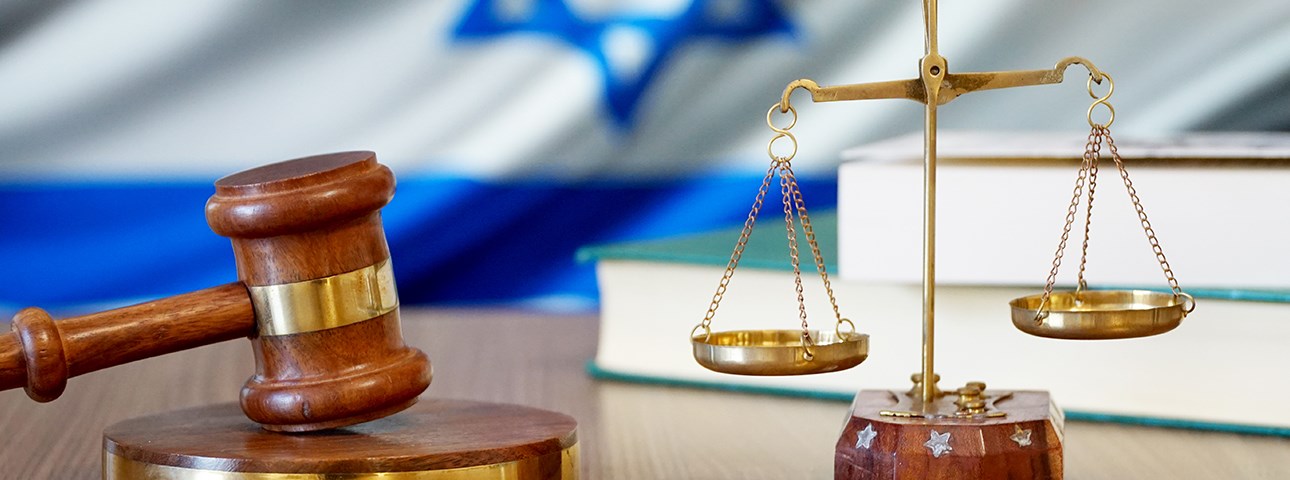
Reversing the ‘Constitutional Revolution’
Written By: Prof. Amichai Cohen, Prof. Yuval Shany
The second article in this series describes in depth how the Supreme Court used its authority, why it encountered a backlash, and what current proposals to limit the power of the Court to exercise judicial review over Knesset legislation look like.

The New Israeli Government’s ‘Constitutional Law Reforms’: Why now? What do they mean? And what will happen next?
Written By: Prof. Amichai Cohen, Prof. Yuval Shany
Political discontent with the power relationship between the judiciary and the political branches has been percolating since the 1990s, often in connection with criminal proceedings against senior politicians. Prof. Amichai Cohen and Dr. Yuval Shany provide context for the ongoing debate concerning recent legal developments in Israel, so that outside observers can follow them more closely.
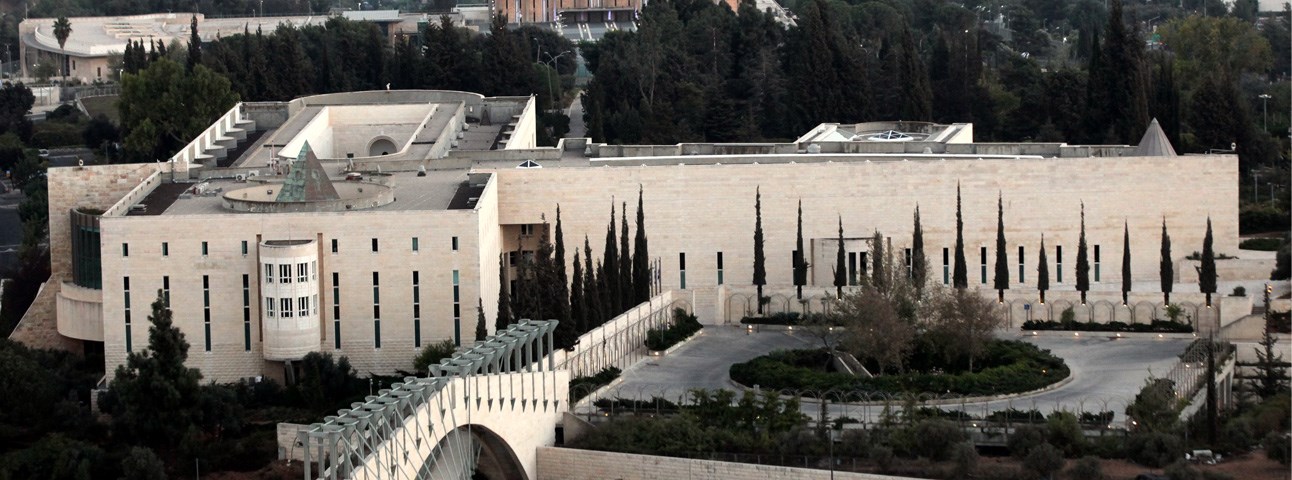
Does Israel Really Need Judicial Reform? 5 Better Ways to Fix Judiciary
Written By: Prof. Suzie Navot
5 other ideas for upgrading Israel's judicial system – without destroying democracy, doing away with the mechanisms for oversight of the government or harming our basic rights.

It’s Just about Unlimited Power – and Nothing Else
Written By: Prof. Suzie Navot
The recently published opinion by the Attorney General, Adv. Gali Baharav-Miara, makes clear that the proposal "reform" makes no attempt to enhance the balance among the branches of government: It is quite simply a demand for unlimited government power.

The Proposed “Reform” of the Judicial System Poses Risk to the Israeli Economy
Written By: Prof. Jacob Frenkel, Prof. Karnit Flug
Debilitating the judicial system would deal a blow to overseas investors’ motivation to invest in Israel and lead to a sharp drop in its credit rating. We need only look at the precedents of Turkey, Hungary, and Poland, to understand just how serious the threat is.

Checks and Balances: The Override Clause and Its Effect on the Three Branches of Government
Written By: Prof. Amichai Cohen
The debate surrounding the Override Clause should really focus on the disproportionate power of the Knesset and not on the power of the Supreme Court. All other democracies have structural mechanisms that limit the concentration of power in the hands of one institutions - we must create such a mechanism in Israel as well.

Overriding the People of Israel
Written By: Prof. Suzie Navot
If Netanyahu's new government implements its plans, human rights may soon depend on majorities. Israel's delicate political structure makes this possible.

#Fix It, Don’t Destroy It
The Israel Democracy Institute’s special conference today (December 12th) focused on the implications of the proposed judicial reforms that have been proposed by members of the incoming coalition.

61 Cats Guarding the Cream
Written By: Dr. Amir Fuchs
The optimistic hope that the majority will not take advantage of its power to perpetuate its rule is akin to leaving the cream to be guarded by 61 cats. The temptation is just too strong.

Judicial Reform in Israel
Written By: Prof. Suzie Navot
In this edited transcript of her conversation with BICOM Director Richard Pater, Vice-President of Research at the Israel Democracy Institute Professor Suzie Navot argues that judicial reforms proposed by the right-wing bloc – to Knesset override of the Supreme Court, executive immunity, and the appointment of judges – threaten Israeli democracy and the already fragile separation of powers.

Judicial Reform
Written By: Prof. Suzie Navot
Prof. Suzie Navot sits down with Richard Pater of Bicom, to discuss judicial reform. Prof. Navot explains the background of Israel’s legal system, its uniqueness among other parliamentary democracies and the significance of potentially implementing an override clause.
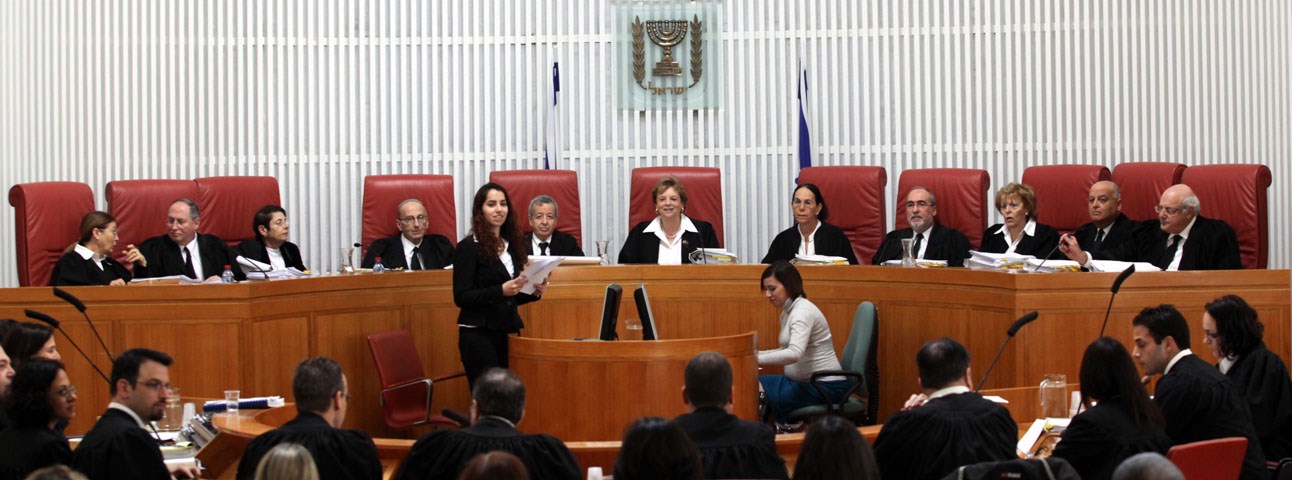
The Tenure on the Bench of Supreme Court Justices
Written By: Dr. Guy Lurie
Among assertions that a limited tenure for justices would prevent excessive influence by past governments on the current composition of the Supreme Court bench and allow the current government to replace a larger number of justices - what is the average tenure of Israeli Supreme Court justices?

Trust is on the Wane
Written By: Dr. Guy Lurie
Despite a decline in trust - the public still believes that in the Court’s role as a professional independent entity and guardian of democratic principles.
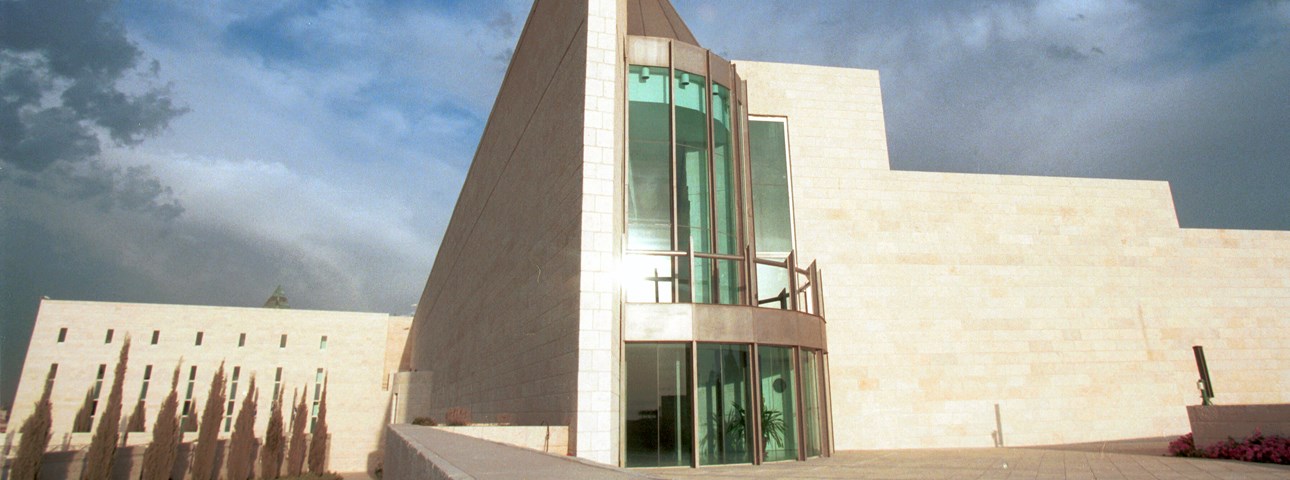
How Revolutionary Was Israel’s ‘Constitutional Revolution’?
Written By: Prof. Amichai Cohen
Prof. Amichai Cohen discusses his new book The Constitutional Revolution and Counter-Revolution, and explains the changing role of the High Court of Justice in maintaining the checks and balances of Israeli democracy.
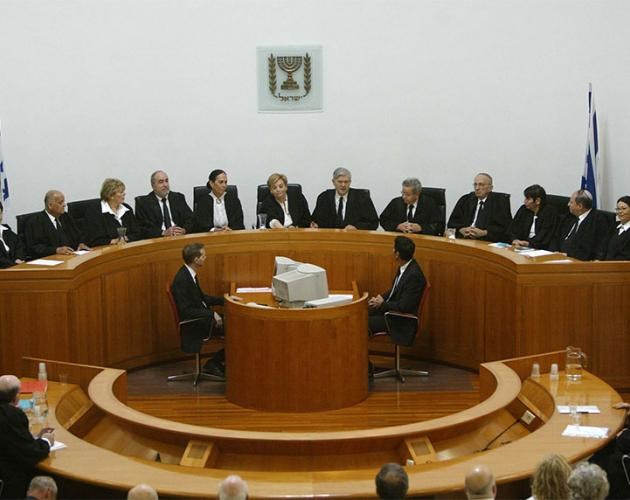
How Many Laws Were Struck Down by the Supreme Court in Israel?
Written By: Dr. Amir Fuchs
With calls to enact an 'override clause' to push back against judicial review back in the news, Dr. Amir Fuchs analyzed the twenty laws the Court has overturned since Israel's establishment

The Rule of Law Over the Ruler
Written By: Prof. Yedidia Z. Stern
It's one of democracy's substantial achievements: just like every citizen, Netanyahu will stand before 3 judges, whose task is to decide whether he is innocent or guilty

The Constitutional Tug of War in the Outgoing Coalition
Written By: Dr. Amir Fuchs
The 20th Knesset was the most injurious of all with regard to democratic values, freedom of expression, gatekeeping and, above all, minority rights. In the next government we can only hope that someone will champion liberal center-right values to continue to protect our democracy.

The end of the delegitimization of the Supreme Court
Written By: Prof. Yedidia Z. Stern
“The campaign to remake the Supreme Court has been completed” said Justice Minister Shaked - so now with its new and more conservative profile, there is no longer any justification for the delegitimization of the Supreme Court.

Survey: 56% of Jews Think Most Arab Citizens Support Temple Mount Attack
Monthly Peace Index also finds that 65% of Israelis do not trust Prime Minister Benjamin Netanyahu's handling of the crisis on Temple Mount.

IDI Presents Outstanding Parliamentarian Award to MKs Elharar and Folkman
Knesset Speaker MK Yuli Edelstein: "It's time to bring the rules of the game back to the Knesset

Override: A Serious Blow to Democracy
Written By: Dr. Amir Fuchs
Dr. Amir Fuchs argues that an override of Supreme Court decisions should be stoutly resisted by democrats from all parts of the political spectrum.
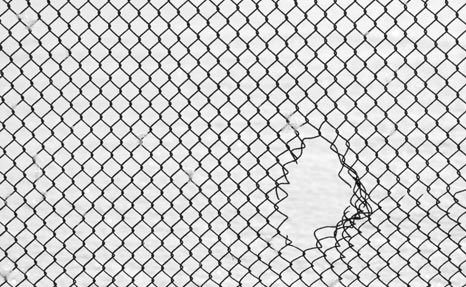
Overriding the Supreme Court: A Breach in the Wall of Democracy
Written By: Dr. Amir Fuchs
Dr. Amir Fuchs discusses the proposal to add an override clause to Israel's Basic Law: Human Dignity and Freedom that would enable the Knesset to bypass the High Court and deal a a severe blow to the main safeguard of human rights and minorities in Israel.
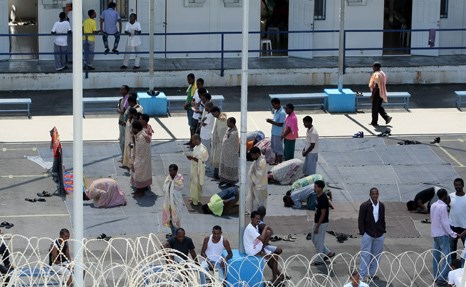
Second Strike and You Are (Finally) Out? The Quashing of the Prevention of Infiltration Law (Amendment No. 4)
Written By: Prof. Reuven (Ruvi) Ziegler
IDI Researcher Dr. Reuven (Ruvi) Ziegler presents a brief overview of the Israeli High Court of Justice's decision to strike down Amendment No. 4 of the Prevention of Infiltration Law, and explores several themes that may be of comparative constitutional interest.

Is "Israeli" a Nationality?
Written By: Jay Ruderman, Prof. Yedidia Z. Stern
Should the State of Israel recognize "Israeli" as a nationality? IDI Vice President Prof. Yedidia Stern and Jay Ruderman assert that it is imperative for the State of Israel to continue distinguishing between citizenship and nationality.

The Referendum Law as a Metaphor
Written By: Dr. Arye Carmon
In an op-ed originally published in Haaretz, IDI Former President and Founder Dr. Arye Carmon explains his reservations about the "Referendum Bill" and warns that the concept of referendum is antithetical to the principles of democracy.

Quashing Legislation Mandating Lengthy Detention of Asylum-Seekers
Written By: Prof. Reuven (Ruvi) Ziegler
Dr. Reuven (Ruvi) Ziegler shares observations on the decision of the Israeli Supreme Court that an amendment of the Prevention of Infiltration Law that mandated lengthy detention of asylum seekers is unconstitutional.

Decade in Review: Human Rights in Israel
Written By: Prof. Mordechai Kremnitzer
IDI Vice President Professor Mordechai Kremnitzer weighs in on the challenges faced by Israel's High Court of Justice, in an article that was published at the end of the third millennium as part of a collaboration between IDI and Walla!, a popular Israeli website.

Decade in Review: A Rocky Road for Israeli Courts
Written By: Prof. Yedidia Z. Stern
IDI Vice President Prof. Yedidia Stern dissects the tenuous road traveled by the Israeli court system, in an article that was published at the end of the third millennium as part of a collaboration between IDI and Walla!, a popular Israeli website.

Decade in Review: The Convergence of Israeli and International Law
Written By: Prof. Yuval Shany
IDI Senior Fellow Professor Yuval Shany explains the increasingly critical relationship between international law and the Israeli legal system, in an article that was published at the end of the third millennium as part of a collaboration between IDI and Walla!, a popular Israeli website.

Who's Afraid of a Jewish State with Equality for All?
Written By: Yohanan Plesner
A state that is proud of its identity has nothing to fear from granting all its citizens equality.

Peace Index: 40% of Israelis Believe that Rifts Between Groups Will Widen
Monthly survey also finds that 84.5% of Israeli public defines mood as good or very good while 43% expresses trust in Prime Minister Netanyahu.

Religion and State in Israel: Charting a New Course for 5778
Written By: Dr. Shuki Friedman,
Is our country and society doomed to continually follow the same path of repeated crisis, or has the time finally come for us to plot a new course?

Ultra-Orthodox in the IDF: A Ticking Time Bomb
Written By: Prof. Yedidia Z. Stern
To encourage enlistment, Israel should adopt a conscription model that is cognizant of the ultra-Orthodox fear of erosion of their identity and employs both positive and negative economic incentives.

Is the Chief Rabbinate's Monopoly on Kashrut Over?
Written By: Dr. Shuki Friedman
The implications of the Supreme Court's ruling go far beyond the Kashrut market.

Supreme Court Strikes Down ultra-Orthodox Exemption From Military
Written By: Yohanan Plesner , Dr. Gilad Malach
IDI responds to high court ruling: “The time has come for our politicians to demonstrate leadership and work to enact a more equitable and effective arrangement.”

What remains of the religious status quo?
Written By: Dr. Shuki Friedman
Instead of Judaism being what unites Jews in Israel with Jews around the world, our religion has become the main source of conflict.
